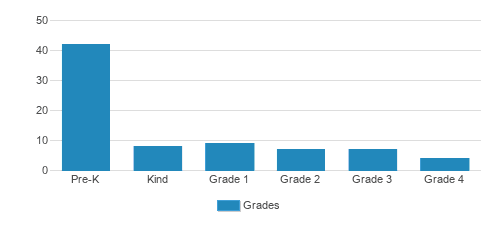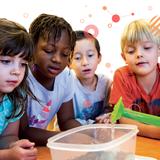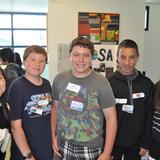Play Mountain Place was founded in Los Angeles by Phyllis Fleishman in 1949, to further the philosophy of self-motivated learning.
Our mission is to provide a humanistic educational environment that is developmentally appropriate for each age group.
Our curriculum is organic, child-initiated, and primarily experiential. A child's inherent desire to learn is acknowledged and facilitated, not forced or squelched.
Curriculum addresses children's social and emotional development as well as their intellectual growth.
In addition, we strive to encourage the empowerment of children, and respect for each other, ourselves and the environment.
Children learn to be part of community, both small and global.
We enroll the whole family, believing in the important role family dynamics and support play in children's growth and development.
As a school, we strive to be a microcosm of the larger society, reflecting the diversity in the Los Angeles community.
In addition to enrolling families of various ethnic, religious, cultural, and sexual orientations, we stress anti-bias and culturally sensitive curriculum in our daily program.
Quick Facts (2026)
- Top-Ranked CA School
- School Type: Alternative School
- Grades: Prekindergarten-5
- Enrollment: 77 students
- Yearly Tuition: $21,000
- Application Deadline: None / Rolling
- Source: National Center for Education Statistics (NCES)
Top Rankings
Play Mountain Place ranks among the top 20% of private schools in California for:
Category
Attribute
School History
School Overview
School Type
School Membership(s)School Assoc.
Religious Affiliation
Grades Offered
Grades Prekindergarten-5
Year Founded
1949
School Calendar
Student Body
Total Students
77 students
Student Body Type
Co-ed
% Students of Color
4%
State avg.: 51%
Students by Grade

Academics and Faculty
Total Classroom Teachers
6 teachers
Student-Teacher Ratio
13:1
National avg.: 13:1
Tuition and Acceptance Rate
Admission Deadline
None / Rolling
Yearly Tuition Cost
$21,000
Application URL
School Notes
- Play Mountain Place was founded in Los Angeles by Phyllis Fleishman in 1949, to further the philosophy of self-motivated learning. Our mission is to provide a humanistic educational environment that is developmentally appropriate for each age group. Our curriculum is organic, child-initiated, and primarily experiential. A child's inherent desire to learn is acknowledged and facilitated, not forced or squelched. Curriculum addresses children's social and emotional development as well as their intellectual growth. In addition, we strive to encourage the empowerment of children, and respect for each other, ourselves and the environment. Children learn to be part of community, both small and global. We enroll the whole family, believing in the important role family dynamics and support play in children's growth and development. As a school, we strive to be a microcosm of the larger society, reflecting the diversity in the Los Angeles community. In addition to enrolling families of various ethnic, religious, cultural, and sexual orientations, we stress anti-bias and culturally sensitive curriculum in our daily program.
Source: National Center for Education Statistics (NCES)
Frequently Asked Questions
How much does Play Mountain Place cost?
Play Mountain Place's tuition is approximately $21,000 for private students.
What is Play Mountain Place's ranking?
Play Mountain Place ranks among the top 20% of private schools in California for: Oldest founding date.
When is the application deadline for Play Mountain Place?
The application deadline for Play Mountain Place is rolling (applications are reviewed as they are received year-round).
In what neighborhood is Play Mountain Place located?
Play Mountain Place is located in the Art District neighborhood of Los Angeles, CA.
School Reviews
Endorse Play Mountain Place. Endorsements should be a few sentences in length. Please include any comments on:
- Quality of academic programs, teachers, and facilities
- Availability of music, art, sports and other extracurricular activities
- Academic or athletic awards
Recent Articles

Navigating Private School Finances 2026
Essential 2026 guide for parents on private school costs, financial aid, and planning strategies.

Preparation for Standardized Tests & College Admissions 2026
A 2026 guide for private school test prep and college admissions strategies, with insights, trends, and best practices for families and educators.

Mental Health & Wellness Support in Private Schools: Key Questions for Parents
Discover essential questions about mental health & wellness support in private schools before enrolling, with 2026 updates for informed decisions.












